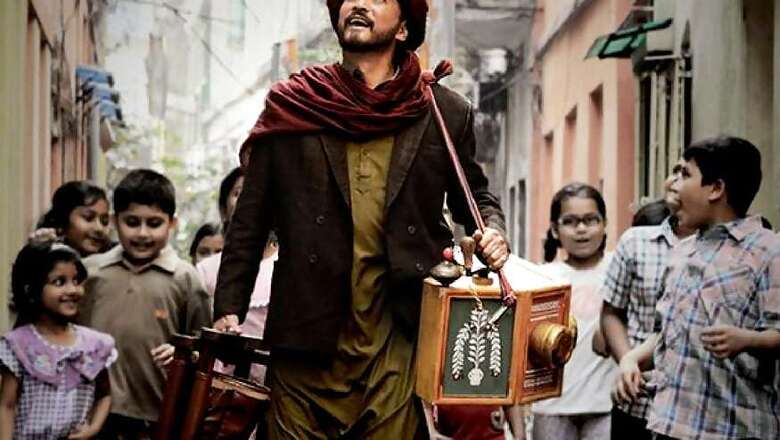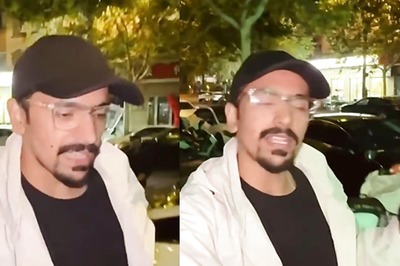
views
Director: Deb Medhekar
Cast: Danny Denzongpa, Adil Hussain and Geetanjali Thapa.
In a rising atmosphere of cultural intolerance, hate and violence, director Deb Medhekar’s Bioscopewala promises hope and manages to convey the more heart-warming emotion of humankind. The film, starring Danny Denzongpa as Rehmat Khan aka Bioscopewala, Geetanjali Thapa as Minnie and Adil Hussain as Robi Basu, is an ultra-modern update of Rabindranath Tagore’s 1892 classic story Kabuliwala, in which an Afghan merchant comes to Calcutta from Kabul to sell dry fruits and shawls and, during his stay in India, forms a beautiful bond with a 5-year-old young girl Minnie because she reminds him of his daughter.
Bioscopewala is fragmented and shot in a stream of flashbacks as Minnie, in her late 20s, tries to recall her childhood. She has been estranged from her father Robi Basu (Hussain) for many years due to their troubled relationship and now lives in France. But fate brings her back to Kolkata as she gets to know about her father’s tragic demise in a plane crash. Upon her arrival, she finds out that her father was travelling to Afghanistan. Later, Minnie’s caretaker Bhola Kaka (Brijendra Kala) informs her that Basu has obtained custody of an elderly Alzheimer’s patient, Rehmat Khan (Danny). Her life takes an unexpected turn when she realises that she has a long lost connection with the old man.
Each door that Minnie opens on her present-day journey takes us to her past when she was 5 and that’s how the film unfolds.
However, five minutes in and we clearly get an idea that the film has gotten many layers added to it. In Medhekar’s newer version of Kabuliwala, Khan has an unconditional passion for cinema and story-telling— so much so that he rebels against the Taliban, who are constantly trying to destroy the rich cultural history of his homeland.
The film, on the contrary, shows how a man with no education, has the potential progressively to change people’s views. It’s beautifully shot, too, but the power comes totally out of the actors, who are in effect playing their parts, especially Danny who does an incredible job in capturing what the world is like through the eyes of a person who finds joy in other’s happiness. It feels like he really enjoyed playing this unusual yet admirable character since he is so believable as the Bioscopewala. Wish I could see more of him in the movie.
Thapa plays her part with subtle precision, too, and displays no unnecessary melodrama. Hussain’s Basu brings a refreshing take on the usual role as upper middle class Bengali, by essaying it with utter sensitivity.
The most startling moment of the movie occurs when Danny puts his hand inside his big loose collarless shirt, and brings out a dirty piece of cloth that bears hand impression of Minnie and his own daughter. The particular sequence is done with so much conviction that it reminds me of Balraj Sahani’s Rehmat Khan.
The audience is also given dramatic and heart-wrenching sights of Afghanistan— destroyed houses, schools and shops, as we go through various streets of Kabul.
Truth to be told, after watching Bioscopewala, I was still in tears for several minutes, standing helpless and asking myself— “What have we become?"
Bioscopewala may not be a film for everyone, but it's definitely a film everyone should be encouraged to watch.
Rating: 4/5















Comments
0 comment